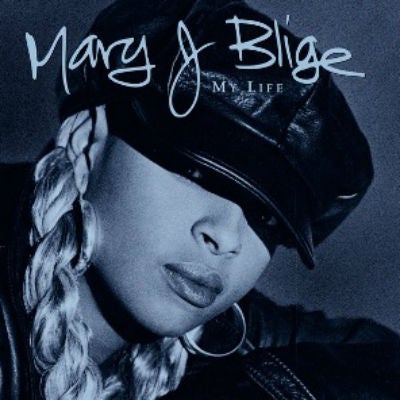
This year marks the 20th anniversary of Mary J. Blige’s landmark album, My Life. Though it was not her debut (that would be What’s the 411?, released in 1992), My Life is considered MJB’s breakthrough — the statement that woke up those who were sleeping on the queen, and the one that had early fans telling everyone, “I told you so!”
As we prepare to bear witness to what will surely be another legendary performance by Mary J. on the main stage at this year’s Essence Festival, we uncover some little-known facts about what is arguably Mary J. Blige’s magnus opus.
1. Old School Sound
Whereas Blige’s debut was a mix of R&B and New Jack Swing, the sound du jour at the time, My Life gave us the vintage soul that would help solidify her title as the queen of hip-hop soul. Much of this is because of Diddy’s touch. Hot off the heels of crafting Notorious B.I.G.’s classic debut, Ready to Die, Diddy (who was going by Puff Daddy at the time) was creating an identity by blending feel-good R&B samples with a touch of tough hip-hop drums. The recipe worked and became as much of a calling card for Diddy as it did MJB. A perfect example of this is the first song on the album, “Mary Jane (All Night Long).” The song borrows from three classic soul records: “Mary Jane” by Rick James, “Close the Door,” by Teddy Pendergrass, and the Mary Jane Girls’ “All Night Long.”
2. Stars in the Background
Before she hit it big on her own as a solo artist, Faith Evans was on background vocal duty for My Life. You can hear her if you listen closely to the ballad, “You Gotta Believe.” (K-Ci and JoJo from Jodeci can also be heard on the same song.) She also appeared on “I Never Wanna Live Without You” and “Don’t Go.”
3. Keeping It In The Family
Blige’s sister, Latonya J. Blige also was on background vocal duty during this album.
4. Take it Personal
At the time Blige was working on My Life she was in a public relationship with K-Ci from Jodeci. Legend has it the turmoil in the relationship, which included alleged acts of physical violence and substance abuse, bleeds into Blige’s performance we hear on the album.
5. Almost Not Happy
Poke of production Tone and Poke had the idea to sample Curtis Mayfield’s “You’re So Good To Me.” In an interview with “Complex,” Tone admitted he didn’t think the track would work and Diddy would turn it down. “But then Poke obviously took it to Puff.”
6. Lauryn Hill Raps
Though never a part of the official album release, there is a very little known remix of “Be With You” featuring Lauryn Hill rapping, that was released on a Bad Boy promotional remix EP. This was the beginning of Hill and Blige’s partnership. In 1998, Blige would join Hill for a duet on her song “I Used To Love Him,” featured on The Miseducation of Lauryn Hill. Hill also produced and wrote Blige’s 1999 single “All That I Can Say.”
7. What’s Beef?
Though at the time Blige was signed on Uptown Records, the label on which My Life is released, tension started to brew between her and company head Andre Harrell. Diddy, who infamously started at Uptown Records as an intern, left to form Bad Boy Records but stayed on to produce My Life anyway. And Blige signed with Death Row Records head, Suge Knight in a management deal.
8. The Notorious B.I.G. Gets Replaced
If the beat for the song “K. Murray” interlude sounds familiar, it’s because it is more popularly known as “Who Shot Ya?” by the Notorious B.I.G., which was released first as B-Side to his 1995 single “Big Poppa” and then later on his posthumous album Born Again. Originally, Biggie’s version was going to be used but it was considered too violent at the time for an R&B album, so the version by Keith Murray was used instead.
9. Grammy Snub and Love
My Life was nominated for Best R&B album at the 1996 Grammy awards but would lose to TLC’s album, CrazySexyCool. Blige, however, would not go home empty handed, co-winning a Grammy for Best Rap Performance by a Duo or Group with Method Man for his song, “I’ll Be There For You/You’re All I Need To Get By.”






